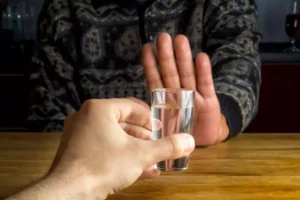- Tüm Ürünler
Mutfak
Oturma Odası
Yatak Odası
Giriş Mobilyası
Banyo
Çalışma Odası
Aksesuarlar
-
 Neo Sehpa
Neo Sehpa
₺25,600.00₺22,230.00
-
- Yaşam Tarzı
Does Drinking Alcohol Contribute to Vision Issues?

Alcohol has been shown to be a trigger for severe migraine headaches in some people. It is a common trigger for people who have migraines, and alcohol can also trigger a headache for some people who don’t otherwise have migraines or headaches. The National Institute on Alcohol Abuse and Alcoholism (NIAAA) defines drinking in moderation as limiting intake to two drinks or less per day for males and one drink or less per day for females.
- It is a common trigger for people who have migraines, and alcohol can also trigger a headache for some people who don’t otherwise have migraines or headaches.
- If you not only drink, but also smoke excessively, you may also suffer from a painless but permanent loss of vision known as optic neuropathy.
- If you think you or someone you know may have a problem with alcohol, the NCADD (National Council on Alcoholism and Drug Dependance, Inc.) and Alcoholics Anonymous have many resources to help.
- Alcohol can mess with color perception by affecting the brain areas responsible for interpreting colors.
Managing Alcohol Cravings During Recovery
- Over time, excessive alcohol use can cause lasting damage to the eye that may promote conditions of vision loss and unusual eye movement.
- Excessive drinking leads to sleep disturbances, dehydration, stress, anxiety, and eye strain.
- However, the damage is near permanent at this point, and symptoms will progress with continued alcohol consumption.
- Comprehensive addiction treatment provides the medical oversight, emotional support, and therapeutic guidance needed to navigate the complexities of recovery safely.
- If you or someone you know is struggling with alcohol addiction and experiencing symptoms like alcohol eyes, we are here to help.
- The higher the concentration of salt in your tears, the faster they’ll evaporate when you blink and distribute them across the surface of your eye.
- Alcohol disrupts how the brain interprets visual cues, leading to blurred vision.
A person can become intoxicated even with moderate drinking and may experience temporary disturbances to their vision. The best way to prevent eye problems due to excessive alcohol consumption is to drink alcohol in moderation or to avoid it altogether. Staying hydrated, eating a healthy diet rich in vitamins and minerals, and protecting the eyes from UV radiation are all ways to maintain good eye health. However, for people with pre-existing eye conditions like glaucoma, the temporary rise in IOP may be more significant and potentially exacerbate their condition. If you have glaucoma or any other eye diseases that affect eye pressure, please consult with an eye care professional about alcohol’s potential impact on your eye health.
Eyes and Alcohol: The Effects of Drinking
- By drinking in moderation and taking care of your eyes, you can enjoy a healthier, clearer vision for years to come.
- Several other health issues can also result from long-term heavy drinking.
However, these changes will go away once the alcohol has cleared the system. The contents of this post and of all Zenni blogs are for informational and marketing purposes only. This post and all Zenni blog contents are not to be considered medical advice.

Finding Treatment for Alcohol Addiction
You might be wise in limiting your consumption of alcohol to special occasions, dinners, and celebrations. In the case of damage to the eye from alcohol abuse, it is best to be wise in preventing it. Some Problems From Heavy DrinkingDouble and distorted vision can occur from information that is slowed down between the eye and the brain. Decreasing the reaction time for the pupils to dilate, alcohol can impair the ability to see different color shades or adjust to lighting differences. Low to moderate alcohol consumption may prevent some eye diseases such as central retinal vein occlusion (RVO), the blockage of eye veins. Studies showed that alcohol reduced vision in low-illumination environments, especially at night.

In this article, we’ll explore the impact alcohol has on your eyes, discussing both short-term inconveniences and potential blurry vision hangover long-term damage. If you or someone you know is struggling with alcohol use, our Pennsylvania rehab center offers resources and support to help you start your journey to recovery. Let’s take a closer look at how alcohol can affect your vision and eye health. There are many reasons to stop drinking, and damage to vision—whether short- or long-term—is one of them. You may have had the experience of having too much to drink one night, maybe at a party or celebration; things begin to get blurry as the alcohol affects your brain and vision. This usually goes away after a short time and is temporary, along with a hangover and headache.





